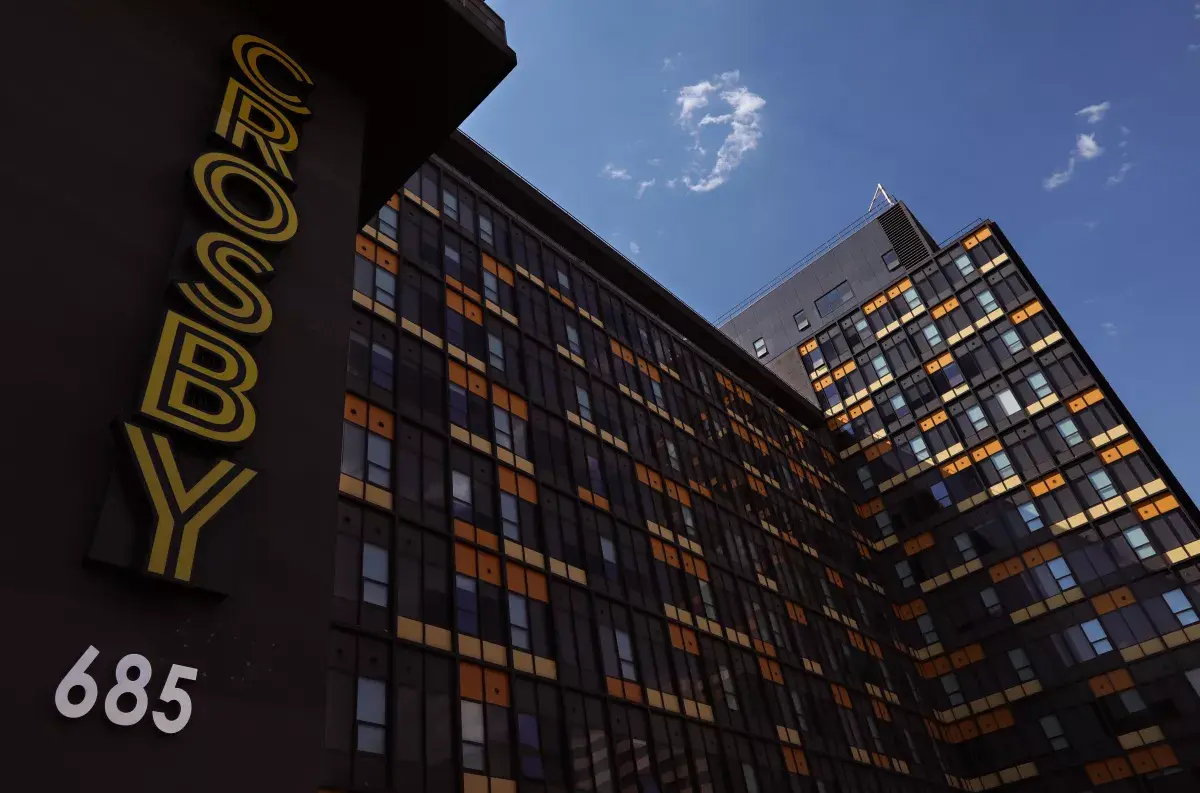California’s many half-empty office buildings and vacant big-box stores may soon get new leases on life. Thanks to local and state efforts to loosen land-use laws, developers in California will soon find it much easier to convert commercial properties into apartments, condominiums and townhomes.
The change couldn’t come at a better time.
Every week it seems there is more bad news from the commercial real estate sector. Owners of commercial high-rises in San Francisco and Los Angeles have defaulted on their loans, and an increasing number of office buildings throughout the state are considered “zombies” for being only half leased. Some recent high-profile exits — including mall giant Westfield’s decision to walk away from its downtown San Francisco Centre — are a reminder that retail vacancies in many cities are still higher than before the pandemic.
But forget the urban doom loop talk. The moribund suburban strip malls and downtown office buildings present a tremendous opportunity for California to address one of its most pressing problems: the crippling shortage of housing that has driven up rents and home prices to unaffordable levels.
Perhaps the biggest reform will come July 1 when Assembly Bill 2011 takes effect. The law, written by Assemblymember Buffy Wicks (D-Oakland), will fast-track approval to build 100% affordable housing on most properties zoned for retail, office or parking. The law also gives expedited approval to projects with a mix of market-rate and affordable housing when they are located on four- to eight-lane commercial corridors. One analysis suggested underutilized commercial properties in Los Angeles County could accommodate 1.6 million housing units.
Jimmy Silverwood, president of Affirmed Housing, is planning to use AB 2011 to develop up to 200 affordable units on a 5-acre vacant commercial lot outside Sacramento. His firm, which specializes in building homes for low-income families, veterans and formerly homeless people, is also looking to acquire empty shopping centers surrounded by sprawling parking lots for development. The law, he said, is especially helpful because it exempts projects from the California Environmental Quality Act, giving developers certainty that they won’t be held up by the threat of CEQA lawsuits.
AB 2011 is aimed at putting new residential construction on commercial lots. But there’s also finally momentum to ease restrictions on adaptive reuse, particularly as more offices sit empty after the shift to remote work. Converting existing office and retail buildings makes a lot of sense. The projects can help inject new life into sleepy commercial centers, preserve local architectural history and character, and reduce the environmental impacts of new construction.
But adaptive reuse can be just as expensive as new construction, which is why the state budgeted $400 million over two years to encourage private adaptive reuse projects.
New bills this year include Assembly Bill 1532, which would fast-track office-to-housing conversions, if they include affordable units. Assembly Bill 529 aims to modernize state building codes to make it easier to convert office and retail buildings into housing. That’s important. It can be prohibitively expensive to upgrade a 30-, 40- or 50-year-old building to present-day standards. The state codes ought to give adaptive reuse projects more flexibility without sacrificing essential safety standards.
Los Angeles is a pioneer in adaptive reuse. The city’s 1999 ordinance allowed developers to convert 1974-and-older buildings downtown. That produced 12,000 housing units in 15 years. Now the Planning Department is working on an ordinance to allow adaptive reuse citywide on properties older than 15 years. It’s an overdue expansion of a successful program. Planners expect conversions of mid-rise office towers on the Westside and in the Valley,thank opening up communities that can be resistant to new housing.
It’s a hopeful sign that local and state lawmakers have been willing to ease zoning laws to encourage redevelopment and adaptive reuse. California can’t afford to let offices and strip malls sit empty when the need for housing is so great.
